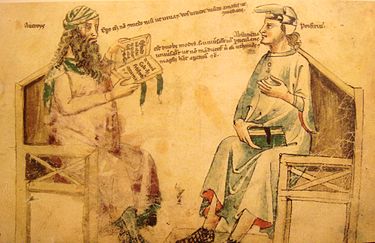 “Averroes must have believed that reason and tradition are the two permanent poles of human life, that human beings cannot live as isolated individuals and that man is driven by nature to live in society and to think, even though the requirements of living in society and the result of free thought may not be always harmonious. Averroes, like earlier Muslim philosophers such as Alfarabi and Avicenna, learned from the death of Socrates and from Plato the lesson of how a philosopher needs to be both free and a good citizen at the same time.”
“Averroes must have believed that reason and tradition are the two permanent poles of human life, that human beings cannot live as isolated individuals and that man is driven by nature to live in society and to think, even though the requirements of living in society and the result of free thought may not be always harmonious. Averroes, like earlier Muslim philosophers such as Alfarabi and Avicenna, learned from the death of Socrates and from Plato the lesson of how a philosopher needs to be both free and a good citizen at the same time.”
Muhsin Mahdi, “On Ibn Rushd, Philosophy and the Arab World,” Alif: Journal of Comparative Poetics 16 (1996): 255-256


